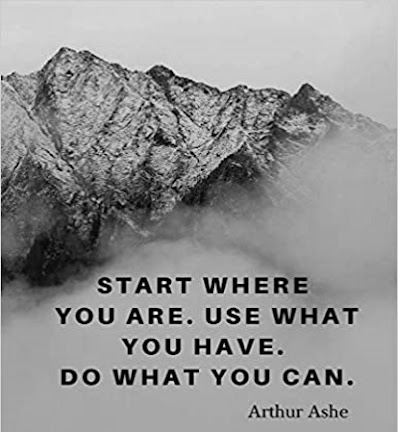As we maneuver and navigate through the daily grind of life, tough decisions and choices are bound to come up. At times, certain choices we face can be very challenging and even life changing. This Challenging Choices Checklist below is a tool for just those situations when the "big decisions" need to be made. Being able to make the difficult choices in life is a much-needed skill. This brief “to do” list offers some really important things to consider:
The Challenging Choices Checklist:
Ask
yourself the following questions and be prepared to answer them honestly. Examples
in Italics
ð
Am I allowing emotion to cloud my decision making? –
Especially early on in a challenging situation, feelings can really disrupt the
decision-making process. A strong feeling in one direction can be extremely
misleading especially because we may feel quite different later down the road. Tip
– If possible, take a break to destress before making a big move
.
·
“I wish I didn’t let my
anger cause me to quit my job. Now I am broke and unemployed, and I feel like
if I just talked things out maybe I could have come up with a compromise
·
“I wish I didn’t dump my boyfriend because of my feelings of
insecurity and jealousy. I should have taken the time to talk things through
when I was calmer first before emotion got the best of me
ð
Am I allowing misguided pride to confuse my thinking? Standing
by your values and principles is admirable and necessary in life. However, in this case “misguided pride”
refers to situations when we overestimate our importance, or we overstate how
“offended” or “hurt” we are.
·
“I broke off the deal when they tried to renegotiate. I said to
myself ‘How dare they question me!’ and I left the deal on the table. Now I am
back to square one because I walked away from a good opportunity because of my
pride”
ð
Did I weigh this out on the scales of life? It is
really important to count the long-term cost of decisions. In the short-term
things may seem fine but an unwise decision can lead to regret down the line
·
I dropped out of college to go for the fast money job opportunity
that came my way. Things fizzled out pretty quickly with my decision and now,
years later I wish I would have thought about how much I would regret leaving
school before graduating
ð
Did I get at least one (or more) other objective viewpoints? – This one
can help so much as a good friend can see things from a valuable new
perspective. A good person to consult with meets these qualifications
· They care
about you and their actions shows that. If a person is not really invested in
your wellbeing, then they may steer you wrong, but when someone cares, they should
be looking out for your best interest
· This person
will tell you what you need to hear (not just what you want to hear) – Will this
person tell it like it is, even if it is a viewpoint, you may not like?
· Is this
person’s own life somewhat stable and do they “practice what they preach? Taking advice
from someone whose own life is a train wreck is a risky move. For example, would
you be quick to take career advice from a chronically unemployed person or
health advice from someone who is completely out of shape? Ideally, the person
should have a track record of reliability, loyalty and sensibility
There
are no guarantees and sometimes risks are needed to make decisions that count.
Still, this checklist can help put the odds in your favor for making a choice
you won’t later regret as you successfully navigate the grind of life.








